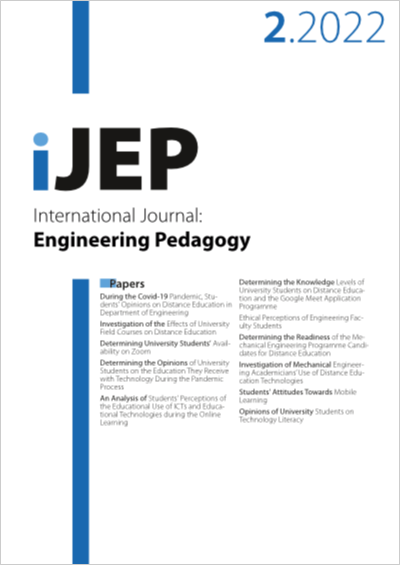During the Covid-19 Pandemic, Students' Opinions on Distance Education in Department of Engineering
DOI:
https://doi.org/10.3991/ijep.v12i2.29321Keywords:
Covid-19 pandemic process, Engineering, distance education, universityAbstract
The decision regarding the distance education method in Turkey on March 15, 2020, has completely changed the learning and teaching methodology of all university students and educators, and it has been seen that all courses have started to be given with distance education. The purpose of this research is to examine the perspectives of engineering university students towards distance education during the Covid-19 pandemic. The research consists of engineering faculty students studying at various universities in the Aegean region and Russian Federation. In the research, a scanning model was used. The data of the research were collected from 520 engineering department university students from various universities in our country, according to the convenience sampling method, and through an online questionnaire filled out by the students. Thanks to this wide participation, results have been obtained that will explain the Covid-19 process related to distance education in a good way. In general, it has been concluded that students are happy to see them in distance education model courses, so they do not fall behind in their education, and university students watch their courses mostly with the help of smart devices.
Downloads
Published
How to Cite
Issue
Section
License
Copyright (c) 2022 Dilek Karahoca, Zulfiya F. Zaripova, Almira R. Bayanova, Lyudmila S. Chikileva, Sergey V. Lyalyaev, Xu Baoyun

This work is licensed under a Creative Commons Attribution 4.0 International License.


